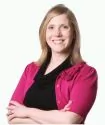The recent decision of Ontario's Superior Court of Justice in Peterson v. College of Psychologists of Ontario, 2023 ONSC 4685, reminds professionals that their right of free speech under Canada's Charter of Rights and Freedoms is not unlimited and, further, that professional regulators may sanction members who make public remarks that could be unprofessional or degrading, even if the remarks are made while the professional is "off duty."
Background
The case arose after the Ontario College of Psychologists ordered a member, Dr. Jordan Peterson, to complete a specified continuing education or remedial program (a SCERP) regarding professionalism in public statements. The College had issued that order following a College investigation of public statements made by Dr. Peterson in 2022. Similar issues had been addressed by the College with Dr. Peterson in 2020.
Dr. Peterson, who no longer has a clinical practice but who regularly appears in the media and has a significant social media presence, sought judicial review of that decision, and claimed that he had already initiated his own remedial program. He said: "I have already undertaken the remediation of my actions in a manner very much akin to what has been suggested by the ICRC (Complaints and Reports Committee of the College) and have done so in an exceptionally thorough and equally exceptionally public and transparent manner..."
The College took the view that Dr. Peterson's proposal "does not adequately remediate the risk." The College said that the advisers selected by Dr. Peterson to provide the remediation program were not independent and would not be "from the point of view of the public interest, nor does it appear to offer any accountability or oversight to the College."
In supporting the decision taken by the ICRC, and denying the application from Dr. Peterson, Judge Paul B. Schabas noted that the "the issue in this case" is whether the College appropriately balanced Dr. Peterson's right to freedom of expression and the statutory objective of the College.
In his decision, Justice Schabas said prior decisions by other courts had noted that Charter protections must be "affected as little as reasonably possible" when balancing of rights and obligations is required. "When a decision engages the Charter, reasonableness and proportionately become synonymous. Simply put, a decision that has a disproportionate impact on Charter rights is not reasonable."
Wrote Justice Schabas: "In my view, the ICRC conducted an appropriate, proportionately-focused balancing of Dr. Peterson's right of freedom of expression and the statutory objectives of the College.....The ICRC approached the matter from the perspective, first, of fulfilling the College's statutory mandate to regulate the practice of psychology in the public interest. This included considering the conduct of Dr. Peterson in light of possible risks to the public. It then considered how to balance the statutory objectives in order to minimize any impact on Dr. Peterson's Charter."
Justice Schabas concluded the ICRC's order is "a proportionate and reasonable option to further its objective of maintaining professional standards, and which will have a minimal impact on Dr. Peterson's right to freedom of expression. Admittedly, the ICRC Decision is not benign; the direction to submit to a SCERP will be placed on Dr. Peterson's public record with the College, but it is a remedial order, not a disciplinary finding...."
Regarding Dr. Peterson's argument that his comments were made while speaking in a personal, rather than professional capacity, Justice Schabas stated: "But Dr. Peterson cannot have it both ways: he cannot speak as a member of a regulated profession without taking responsibility for the risk of harm that flows from him speaking in that trusted capacity."
Dr. Peterson's initial comments that gave rise to the College's investigation included Dr. Peterson referring to a "vindictive" client whose complaint about him was a "pack of lies." Speaking about air pollution and child deaths, Dr Peterson had said: "It's just poor children and the world has too many people on it anyways." He had also referred to an Ottawa City Councilor as "an appalling self-righteous moralizing thing."
Key Takeaways
The Peterson decision does not mean that regulated professionals are prohibited from engaging publicly in debate on areas that are of interest to them. However, if a professional is holding themselves out as a professional in a specific area and using demeaning or inappropriate language while making public comments, they may face consequences from their regulatory body.
The law firm representing Dr. Peterson – Henein Hutchison Robitaille LLP – published a statement following the decision indicating that Dr. Peterson has instructed his counsel to seek leave to appeal to the Ontario Court of Appeal.
The content of this article is intended to provide a general guide to the subject matter. Specialist advice should be sought about your specific circumstances.

